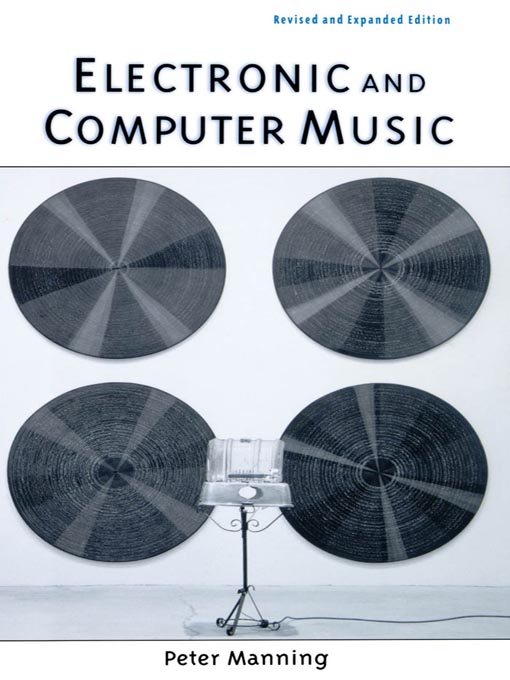Jacques Attali: Noise: The Political Economy of Music (1977–) [FR, EN, ES, TR]
Filed under book | Tags: · cultural economy, cultural production, music, music history, noise, political economy

“Attali’s essential argument in Noise: The Political Economy of Music is that music, as a cultural form, is intimately tied up in the mode of production in any given society. For Marxist critics, this idea is nothing new. The novelty of Attali’s work is that it reverses the traditional understandings about how revolutions in the mode of production take place.
Attali believes that music has gone through four distinct cultural stages in its history: Sacrificing, Representing, Repeating, and a fourth cultural stage which could roughly be called Post-Repeating. These stages are each linked to a certain “mode of production”; that is to say, each of these stages carries with it a certain set of technologies for producing, recording and disseminating music, and also concomitant cultural structures that allow for music’s transmission and reception.”
French edition
Publisher PUF, Paris, 1977
301 pages
English edition
Translated by Brian Massumi
Foreword by Fredric Jameson
Afterword by Susan McClary
Publisher Manchester University Press, Manchester, 1985
Theory and History of Literature, Volume 16
ISBN 0719014719, 9780719014710
179 pages
Reviews: Edinburgh Review (1986), Dana Polan (SubStance, 1988), Ronald M. Radano (Ethnomusicology, 1989), Steven Shaviro (2005), notbored.org (n.d.), J. Szigeti (2014).
Outline: Theodore Gracyk.
Commentary: Eric Drott (Critical Inquiry, 2015).
Bruits: essai sur l’economie politique de la musique (French, 1977, added on 2021-4-11)
Bruits: essai sur l’economie politique de la musique (French, new ed., 1977/2001, added on 2013-9-25, updated on 2021-4-11)
Noise: The Political Economy of Music (English, 1985, updated on 2012-7-24)
Ruidos: ensayos sobre economía política de la música (Spanish, trans. Ana María Palos, 1995, updated on 2021-4-11)
Gürültüden müziğe: müziğin ekonomi-politiği üzerine (Turkish, trans. Gülüş Gülcügil Türkmen, 2005/2014, EPUB, added on 2021-4-11)
Jane F. Fulcher: French Cultural Politics and Music: From the Dreyfus Affair to the First World War (1999)
Filed under book | Tags: · cultural politics, france, music, music history

This book draws upon both musicology and cultural history to argue that French musical meanings and values from 1898 to 1914 are best explained not in terms of contemporary artistic movements but of the political culture.
During these years, France was undergoing many subtle yet profound political changes. Nationalist leagues forged new modes of political activity, as Jane F. Fulcher details in this important study, and thus the whole playing field of political action was enlarged. Investigating this transitional period in light of several recent insights in the areas of French history, sociology, political anthropology, and literary theory, Fulcher shows how the new departures in cultural politics affected not only literature and the visual arts but also music. Having lost the battle of the Dreyfus affair (legally, at least), the nationalists set their sights on the art world, for they considered France’s artistic achievements the ideal means for furthering their conception of “French identity.” French Cultural Politics and Music: From the Dreyfus Affair to the First World War illustrates the ways in which the nationalists effectively targeted the music world for this purpose, employing critics, educational institutions, concert series, and lectures to disseminate their values by way of public and private discourses on French music. Fulcher then demonstrates how both the Republic and far Left responded to this challenge, using programs and institutions of their own to launch counterdiscourses on contemporary musical values.
Perhaps most importantly, this book fully explores the widespread influence of this politicized musical culture on such composers as d’Indy, Charpentier, Magnard, Debussy, and Satie. By viewing this fertile cultural milieu of clashing sociopolitical convictions against the broader background of aesthetic rivalry and opposition, this work addresses the changing notions of “tradition” in music–and of modernism itself. As Fulcher points out, it was the traditionalist faction, not the Impressionist one, that eventually triumphed in the French musical realm, as witnessed by their “defeat” of Stravinsky’s Rite of Spring.
Publisher Oxford University Press US, 1999
ISBN 0195120213, 9780195120219
291 pages
PDF (20 MB, updated on 2014-9-2)
Comment (0)Peter Manning: Electronic and Computer Music (1985–)
Filed under book | Tags: · computer music, electroacoustic music, electronic music, music, music history, musique concrète

“Peter Manning’s classic text Electronic and Computer Music deals with the development of the medium from its birth to the 21st century. The first section of the book covers electroacoustic music from its beginning at the turn of the century to 1945, the development of post-1945 ‘classical’ studios, development of voltage-controlled technology, and its commercial exploitation in tape works, live electronic music, and the early use of electronics in rock and pop music. Section two, Computer Music, treats the digital revolution from the early experiments during the late 1950s and early 1960s to the advanced systems of today. Emphasizing the functional characteristics of emerging digital technologies and their influence on the creative development of the medium, Manning covers key developments in both commercial and the non-commercial sectors.”
First published by Oxford University Press, New York, 1985.
Third, revised and updated edition
Publisher Oxford University Press, New York, 2004
ISBN 0195144848, 9780195144840
x+474 pages
Key terms:
empreints DIGITALes, electronic music, IRCAM, MIDI, musique concrete, Wergo, CSOUND, timbre, personal computer, MUSICn, computer music, digital-to-analog converter, Apple Macintosh, music workstation, Synclavier, Yamaha, analog synthesizer, ring modulator, Synket, CCRMA
Third edition (2004, 30 MB, updated on 2021-4-8)
Fourth edition (2013, added on 2021-4-8)

